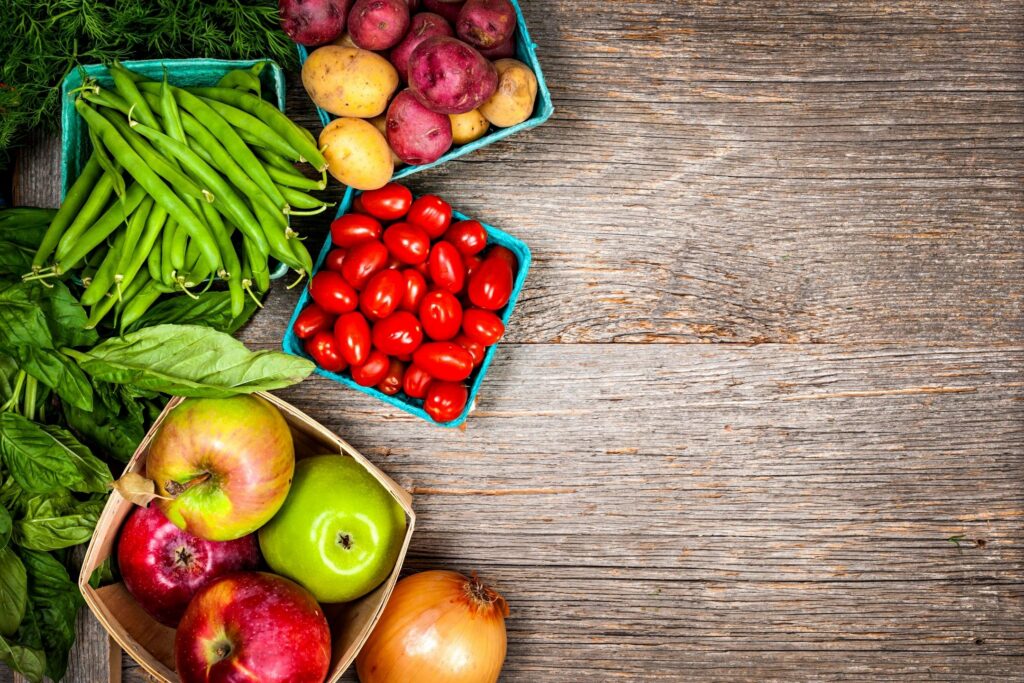Chow Line: Don’t bleach your food to protect against COVID-19


Chow Line: Don’t bleach your food to protect against COVID-19
By Tracy Turner
I’m really worried about COVID-19 and want to keep my family safe, so lately, I’ve been rinsing my fresh fruits and vegetables with a mixture of bleach and water. That’s safe, right?
No, that is not safe. You should NEVER wash or rinse ANY food product with any form of bleach, disinfectant, or any other household cleaning chemicals.
In fact, the Centers for Disease Control and Prevention recently issued a notice to consumers alerting them to the dangers of rinsing, soaking, or washing any food products with bleach or disinfectant, after a significant number of consumers have been doing just that.
Calls to poison centers around the country regarding exposures to cleaners and disinfectants have increased sharply since the beginning of the COVID-19 pandemic, the CDC said.
This comes as 42% of consumers who responded to a May 2020 poll conducted by OnePoll on behalf of HelloFresh, said that they worry about the cleanliness of the products they buy and the overall environment while grocery shopping, according to published reports. The survey of 2,000 Americans polled how consumer views on grocery shopping have changed in light of the coronavirus pandemic.
And in a May 2020 online survey of 502 U.S. adults conducted by the CDC, 39% of respondents reported they engaged in at least one of the following high-risk practices with the intent of preventing COVID-19 transmission:
- Intentionally inhaling or ingesting cleaners and disinfectants
- Drinking or gargling diluted bleach solutions, soapy water, and other cleaning and disinfectant solutions
- Using bleach on food products such as fruits and vegetables
- Applying household cleaning and disinfectant products to hands or skin
- Misting the body with a cleaning or disinfectant spray
Given the high percentage of individuals engaging in these unsafe practices, the CDC recommends that public messaging should continue to “emphasize evidence-based, safe practices such as hand hygiene and recommended cleaning and disinfection of high-touch surfaces to prevent transmission of COVID-19 in household settings.”
“That messaging should also emphasize avoidance of high-risk practices such as unsafe preparation of cleaning and disinfectant solutions, use of bleach on food products, application of household cleaning and disinfectant products to skin, and inhalation or ingestion of cleaners and disinfectants,” the CDC said in a written statement.
It’s also important to understand that there is currently no evidence to suggest that COVID-19 is a foodborne disease, Sanja Ilic, food safety state specialist with Ohio State University Extension, the outreach arm of The Ohio State University College of Food, Agricultural, and Environmental Sciences (CFAES), has said.
She said that COVID-19 transmits person-to-person through droplets that are produced when an infected individual, speaks, coughs, or sneezes. The virus is most often transferred to another individual when droplets directly reach their nose, mouth, or eyes, or through close contact such as a handshake.
The virus can also transmit when a person touches an object or surface with the virus on it and then touches their mouth or eyes before washing their hands, Ilic said.
However, fresh fruits and vegetables can sometimes harbor harmful bacteria, so you should rinse produce under running water before preparing or eating it, according to Barbara Kowalcyk, a food safety expert and an assistant professor at CFAES’ Department of Food Science and Technology.
“The only exception is prewashed produce and raw meat and poultry products,” said Kowalcyk, who is also director of the Center for Foodborne Illness Research and Prevention (CFI) at CFAES. “Washing those products will actually increase the risk of foodborne illness because it can spread pathogens around.”
Fruits and vegetables that have skin should also be rinsed under running water before eating, cutting, or cooking them, even if you don’t plan to eat the skin, she said.
“That is because peeling or cutting unwashed produce can transfer dirt or other contaminates from the surface of the produce to the portion of the fruit or vegetable you plan to eat,” Kowalcyk said. “Firm produce such as melons, apples, and cucumbers should be scrubbed with a clean produce brush before peeling or cutting into them.
“They should then be dried off with a clean paper towel or cloth to further reduce harmful bacteria that might be present on the skin. Importantly, produce should be washed with water only. Never use soap, a bleach solution, or other sanitizers to wash produce.”
Lastly, don’t forget to wash your hands for at least 20 seconds with soap and warm water before and after food preparation and before eating.
Chow Line is a service of The Ohio State University College of Food, Agricultural, and Environmental Sciences and its outreach and research arms, Ohio State University Extension and the Ohio Agricultural Research and Development Center. Send questions to Chow Line, c/o Tracy Turner, 364 W. Lane Ave., Suite B120, Columbus, OH 43201, or [email protected].









